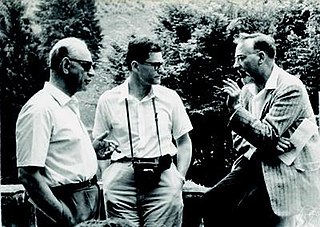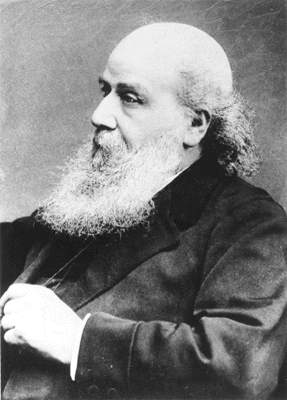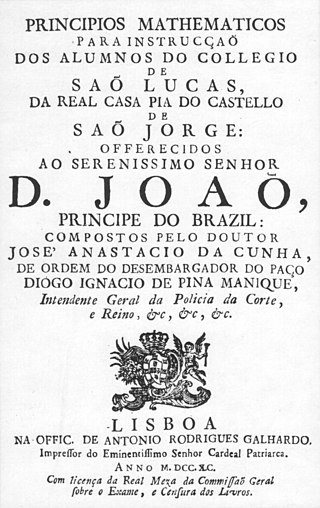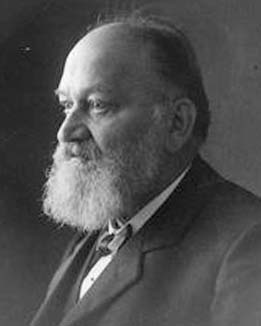This list of Brazilian mathematicians includes the famous mathematicians from Brazil and also those who were born in other countries but later became Brazilians.
This list of Brazilian mathematicians includes the famous mathematicians from Brazil and also those who were born in other countries but later became Brazilians.
{{citation}}: CS1 maint: multiple names: editors list (link)Abu'l Hasan Ahmad ibn Ibrahim Al-Uqlidisi was a Muslim Arab mathematician, who was active in Damascus and Baghdad. He wrote the earliest surviving book on the positional use of the Arabic numerals, Kitab al-Fusul fi al-Hisab al-Hindi around 952. It is especially notable for its treatment of decimal fractions, and that it showed how to carry out calculations without deletions.

Kurt August Hirsch was a German mathematician who moved to England to escape the Nazi persecution of Jews. His research was in group theory. He also worked to reform mathematics education and became a county chess champion. The Hirsch length and Hirsch–Plotkin radical are named after him.
The MacTutor History of Mathematics Archive is a website maintained by John J. O'Connor and Edmund F. Robertson and hosted by the University of St Andrews in Scotland. It contains detailed biographies on many historical and contemporary mathematicians, as well as information on famous curves and various topics in the history of mathematics.
Abu Mahmud Hamid ibn al-Khidr al-Khujandi was a Muslim Transoxanian astronomer and mathematician born in Khujand who lived in the late 10th century and helped build an observatory, near the city of Ray, in Iran.

The Sylvester Medal is a bronze medal awarded by the Royal Society (London) for the encouragement of mathematical research, and accompanied by a £1,000 prize. It was named in honour of James Joseph Sylvester, the Savilian Professor of Geometry at the University of Oxford in the 1880s, and first awarded in 1901, having been suggested by a group of Sylvester's friends after his death in 1897. Initially awarded every three years with a prize of around £900, the Royal Society have announced that starting in 2009 it will be awarded every two years instead, and is to be aimed at 'early to mid career stage scientist' rather than an established mathematician. The award winner is chosen by the Society's A-side awards committee, which handles physical rather than biological science awards.
The Sir Edmund Whittaker Memorial Prize is awarded every four years by the Edinburgh Mathematical Society to an outstanding young mathematician having a specified connection with Scotland. It is named after Sir Edmund Whittaker.

Ernst Sigismund Fischer was a mathematician born in Vienna, Austria. He worked alongside both Mertens and Minkowski at the Universities of Vienna and Zurich, respectively. He later became professor at the University of Erlangen, where he worked with Emmy Noether.

José Anastácio da Cunha was a Portuguese mathematician. He is best known for his work on the theory of equations, algebraic analysis, plain and spherical trigonometry, analytical geometry, and differential calculus.
Abū ʿAbd Allāh Muḥammad ibn Muʿādh al-Jayyānī was an Arab, mathematician, Islamic scholar, and Qadi from Al-Andalus. Al-Jayyānī wrote important commentaries on Euclid's Elements and he wrote the first known treatise on spherical trigonometry.

Hermann Cäsar Hannibal Schubert was a German mathematician.

Félix Pollaczek was an Austrian-French engineer and mathematician, known for numerous contributions to number theory, mathematical analysis, mathematical physics and probability theory. He is best known for the Pollaczek–Khinchine formula in queueing theory (1930), and the Pollaczek polynomials.
The following is a timeline of key developments of algebra:

Julius Weingarten was a German mathematician. He received his doctorate in 1864 from Martin-Luther-Universität Halle-Wittenberg. He made some important contributions to the differential geometry of surfaces, such as the Weingarten equations.
Edmund Frederick Robertson is a professor emeritus of pure mathematics at the University of St Andrews.
Charles Fox was the English mathematician who introduced the Fox–Wright function and the Fox H-function. In 1976, he received an honorary doctorate from Concordia University.

Hans Wilhelm Eduard Schwerdtfeger was a German-Canadian-Australian mathematician who worked in Galois theory, matrix theory, theory of groups and their geometries, and complex analysis.